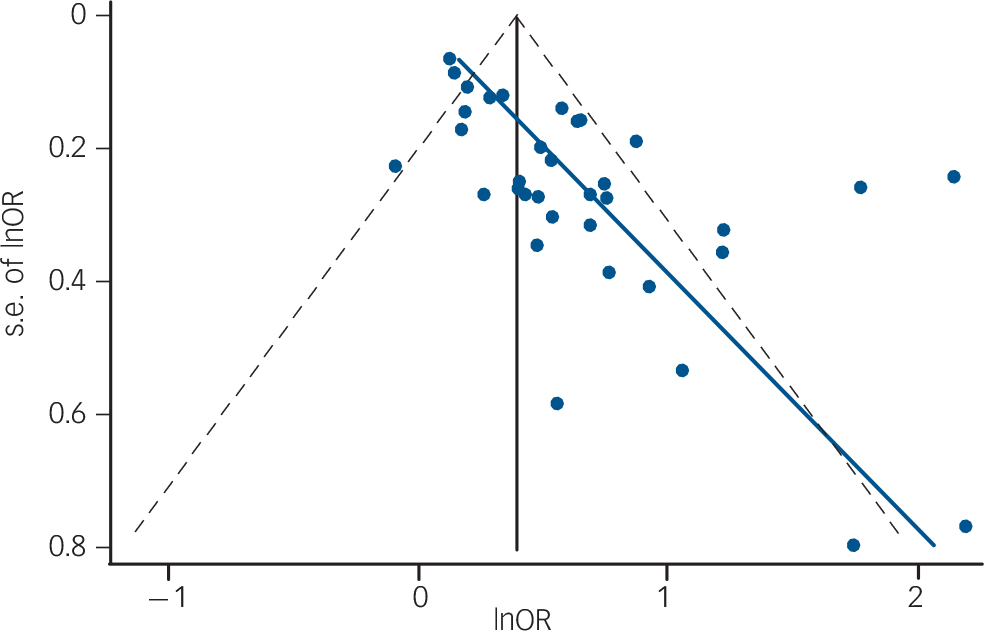Professor Coleman’s systematic review and meta-analysis of the literature on termination of pregnancy and mental health Reference Coleman1 featured several significant omissions: an undisclosed conflict of interest; no assessment of publication bias; and no assessment of the quality of studies included. The search strategy was also inadequately reported, and the meta-analytic technique was faulty.
First, the paper states ‘Declaration of interest: None’. We believe this is incorrect. It seems that Professor Coleman is an anti-abortion campaigner, who has previously expressed the view that campaigning should include work in academic journals. For example, in a Powerpoint presentation on the website of the American Association of Pro-Life Obstetricians and Gynecologists, Professor Coleman states:
‘We need to develop organized research communities to continue the research, apply for grants, recruit young academics, critique data produced by pro-choice researchers, challenge politically biased professional organizations, train experts to testify, and disseminate cohesive summaries of evidence.’ Reference Coleman2
The British Journal of Psychiatry has committed to the International Committee of Medical Journal Editors’ uniform requirements for declaration of conflict of interest. This requires the declaration of ‘any relevant non-financial associations or interests (personal, professional, political, institutional, religious, or other) that a reasonable reader would want to know about in relation to the submitted work’. 3 As noted in a recent editorial, ‘the difficult words here are “personal”, “relevant” and “reasonable”.’ Reference Tyrer4 Given the role that campaigning has played in this issue, we believe this conflict of interest should have been declared to readers.
Second, unusually for a systematic review and meta-analysis, there was no attempt to account for the role of publication bias in the findings. We have replicated the meta-analysis by importing Coleman’s data into Stata 11. After verifying that the summary odds ratios and confidence intervals produced were identical, we went on to create a funnel plot (Fig. 1) using metafunnel. This

Fig. 1 Funnel plot examining publication bias data presented by Coleman. Reference Coleman1
found evidence strongly suggestive of publication bias in the literature presented. We further used Egger’s test using the metabias command in Stata 11, and again found very strong evidence suggesting publication bias (P<0.0001).
Third, we are concerned to note that there was no attempt to account for quality of evidence, since a previous systematic review and meta-analysis found strong evidence for a relationship between methodological rigour and study results:
‘The highest quality studies had findings that were mostly neutral, suggesting few, if any, differences between women who had abortions and their respective comparison groups in terms of mental health sequelae. Conversely, studies with the most flawed methodology found negative mental health sequelae of abortion.’ Reference Charles, Polis, Sridhara and Blum5
Finally, we note that there was only one assessor for the studies, and several of the included studies had more than one outcome, which were used in the meta-analysis as if they were independent observations.
We believe that as a result of these features the paper falls far short of best practice in the execution of publication-standard meta-analyses.




eLetters
No eLetters have been published for this article.